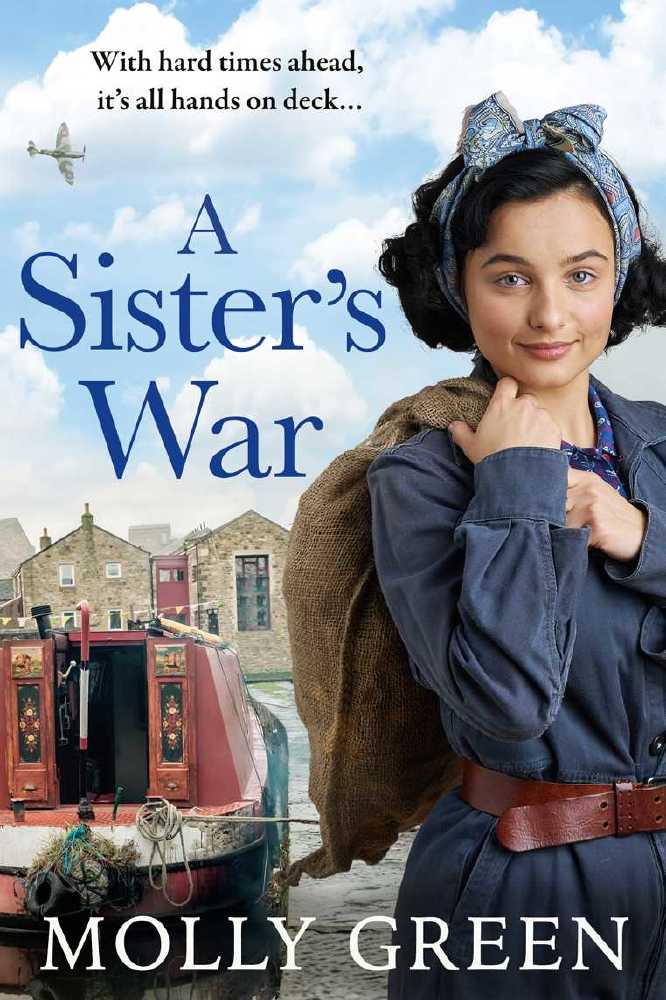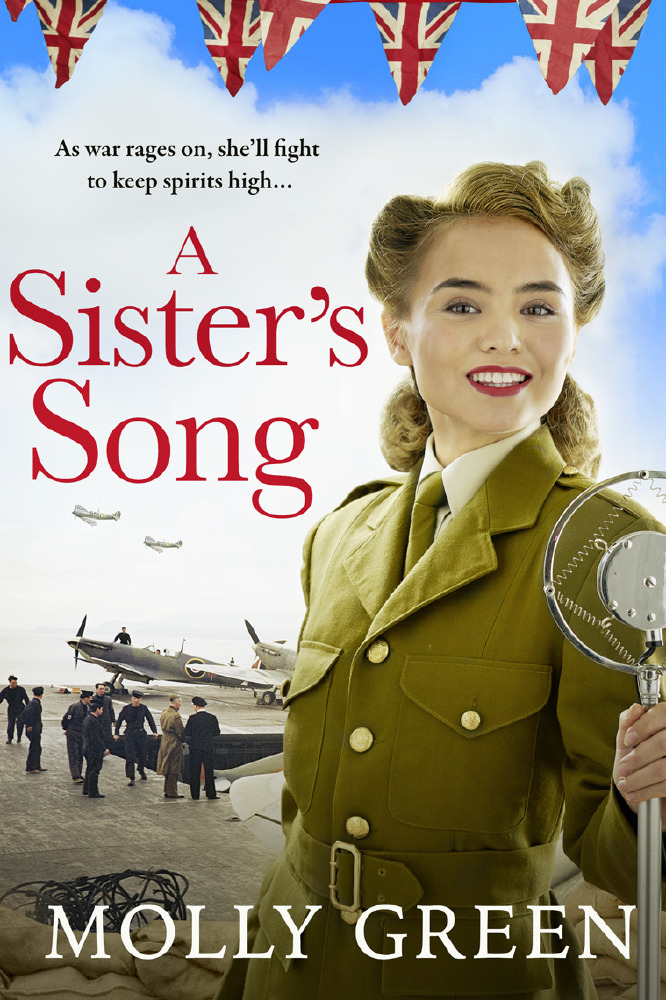Writing historical novels set in wartime can sometimes present a problem with friends who read my books. Under the pseudonym of Molly Green, I’ve just begun my seventh novel set in the Second World War and have three dear friends who regularly read my books and always tell me how much they enjoy them and can’t wait for the next. But these friends are a little different – they’re German, although two have settled in London. And inevitably in the novels I write, these women are consistently reading about Germans being the enemy.

A Sister's War
All three totally accept this, but with each novel I couldn’t help feeling slightly awkward. One day I decided to let them into a secret. When I was in my twenties, my mother confessed that my grandfather wasn’t my real grandfather.
How marvellous! Not one drop of blood in me from the intimidating ‘grandfather’ I’d always been terrified of as a child.
‘If he isn’t, then who is?’
‘Your grandmother – that is, my mother – met someone in the First World War. She was already married with two children, but they had a love affair.’
‘Oh, how romantic!’
‘Not in those days. He was a prisoner of war.’
‘Goodness!’
‘So I’m illegitimate … and half German!’ she added.
Of course … her fair hair and incredible blue eyes. I pumped Mum for more information, but her mother had only told her his surname and that he was the kindest man she’d ever known. I remember being disappointed I would never meet him, nor any German cousins I might have. For my mother it must have been terribly sad to have a father who may not have even known of her existence.
But at the time she dropped this intriguing bombshell, all I’d wanted to do was travel and live in another country. I’d set my heart on Italy, but there and then I decided on Germany. I couldn’t track down my grandfather’s family with nothing more than his surname, but at least I could get to know the country he came from and try to learn the language.
Weeks later I spotted an advertisement in The Lady magazine for an assistant cook to work in a sanatorium in Bavaria. I applied, and to my surprise I received a letter from a Frau Mengershausen – with my start date!
Mum was horrified. She’d watched too many black-and-white films on patients being sent to sanatoriums in the mountains to cure their TB.
‘No, Mum, it’ll be like a health spa,’ I said confidently.
I could hardly contain my excitement on the train from Norwich, then making the changes from London all the way to Munich, and finally the little post-card village of Bayrischzell nestled in the heart of the stunning Bavarian Alps. Then the wooden Alpine house, Tannerhof, came into view as the taxi crept up the snow-clad hill. And when the beaming housekeeper opened the door, the smell of apples and cinnamon wafted towards me – how heavenly.
Then I came hurtling down to earth.
No one in the kitchen spoke a word of English to me and I had the distinct feeling they didn’t want this English girl invading their kitchen. Could they still be nursing a grievance from the war? But I soon realised it was because they knew no more English than I knew German, and it slowed them down when they could do the job so much quicker and better.
The first shock was being on my feet long hours into the evening with no breaks except lunch, six days a week, and no coffee or tea fix to sustain me.
I’d packed a Teach Yourself German book but found it difficult to try out phrases in the bustling kitchen against the hubbub of this strange-sounding language. Emmi, the head cook, rarely cracked a smile, so the first words I learned to say after a delicious meal were: ‘Das war köstlich.’ Her mouth would just twitch up at the corners but it was enough to encourage me.
‘Kill them with kindness’ was my motto. I put it to the test and worked as hard as any of them, although I rebelled and took two 15-minute breaks – to their open-mouthed astonishment. Eventually they began to accept me, until in the end we grew not only tolerant, but genuinely fond of one another. When the best year of my life was up there were hugs and tears – even from Emmi.
Twenty years later I went back – this time as a guest. They greeted me as though I were a long-lost cousin. Who knows – maybe I was!
Years later, back in London, I told my lovely German friends the story. They put their arms around me and kissed me, absolutely thrilled.
I was so glad at that moment to be ‘one of them’.
The third of The Victory Sisters trilogy: A Sister’s War, pub. date 18th May 2021
RELATED: How the coronavirus has affected my writing life - Molly Green
It’s what we authors do – sometimes for hours on end – so immersed in our stories that we don’t even notice we’re alone. In fact, we welcome our aloneness, undisturbed by family or the weather outside, and can even feel resentful when the telephone rings and we’re in the middle of a particularly emotional or cliff-hanging scene. ‘Should I answer it or just let them leave a message?’ is what I usually ask myself, the shrill ring of the phone having made me nearly jump out of my seat when I’ve been tapping away happily at the screen with my latest novel. And woe betide if anyone interrupts me on my precious coffee break. I’m ashamed to say I invariably pretend I’m not cocooned in my writing cabin and let them leave a message. Even having to break off to answer emails can be a chore... to read more click HERE


